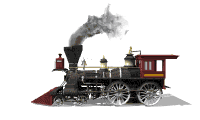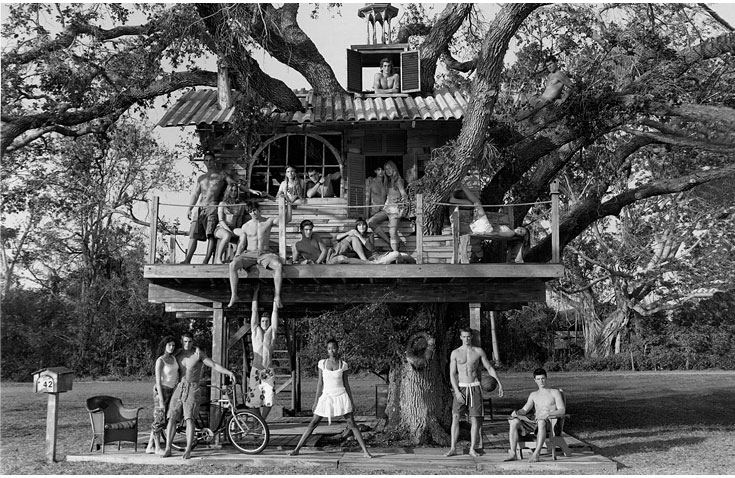Wednesday, September 15, 2004
Mission Still Not Accomplished
With U.S. control imperiled in Iraq, the military vows to oust the insurgents from their havens. Here's what it will take
The U.S. military has been here before: caught in a conflict where the thing it does best--fighting--can't win the war. In Iraq today, brute force is a wasting asset, as Major General Peter Chiarelli, commander of the 1st Cavalry Division, knows firsthand. On a hot late-summer day, his soldiers entered Baghdad's Sadr City slum to quell attacks from militiamen loyal to rebel cleric Muqtada al-Sadr. Chiarelli's troops came under fierce fire as dozens of rocket-propelled grenades (RPGs) pounded their vehicles, and roadside bombs blew the tracks off a tank. For four hours, the two forces battled until the outmatched gunmen melted into the shadows. "We killed folks. There's no doubt we did," says Chiarelli. He knew the fighting would soon resume, but he sent his men back into the same neighborhood to distribute food supplies and materials such as cement, nails and boards to repair homes. It was part of the military's mixed mission: to defeat the insurgents while trying to win the backing of Iraq's resentful citizens.
But these days even good intentions don't add up to much. Chiarelli last month had hoped to drain recruits from al-Sadr's Mahdi militia by hiring 15,000 Sadr City men to clean the district's filth-filled streets. When a truce between coalition forces and al-Sadr broke down, however, the work project collapsed. The state of the district helps explain, Chiarelli says, why "a guy in Sadr City feels there is no hope." There's sewage in his yard, he gets one hour of electricity out of six, and he has no job. "If someone offers him money to shoot an RPG at Americans," Chiarelli says, "I would imagine it's not a hard choice."
That kind of despair, 19 months after the U.S. toppled Saddam Hussein, is adding fuel to the angry guerrilla insurgency that the Bush Administration acknowledged last week is out of hand. Important parts of the country, Chairman of the Joint Chiefs of Staff General Richard Myers said, are controlled by rebels. Principal cities and major roads west and north of the capital are ruled by Sunni insurgents. Al-Sadr's men launch uprisings at will across the wide Shi'ite belt, and even parts of Baghdad are no-go zones for U.S. troops and the frail forces of the interim Iraqi government. All this has helped make the peace much bloodier than the war: last month anti-U.S. attacks climbed to 87 a day, more than double the rate in 2003 and the first half of 2004. The U.S. death toll since sovereignty was returned to Iraq on June 28 has eclipsed the number killed in the invasion, and the total tally just passed 1,000. The wounded number more than 7,000. Defense Secretary Donald Rumsfeld estimates that coalition forces killed up to 2,500 suspected insurgents in August, but the will of the rebels shows few signs of cracking. Attacks on U.S. troops increasingly come in the form of direct fire from small arms and suicide bombs, the tactics of a more sophisticated and in-your-face foe.
The Bush Administration would prefer to avoid any bloody showdowns until after the U.S. presidential election in November, but it faces hard decisions now. The crisis on the ground imperils prospects for Iraq's national elections in January, the results of which could determine how quickly the U.S. can draw down its troop levels. For a legitimate vote to go forward, U.S. and Iraqi forces must soon wrest back control of the country. But there are no easy ways to do that. With their overwhelming firepower, coalition troops could take any Iraqi city at any time, but the collateral damage would be heavy and the political costs high. "It's an inherent dilemma," says a senior U.S. intelligence official. "If you don't go in, you've got a no-go zone" that cedes control to the enemy. "If you do go in," he adds, "you cause resentment and anger" that breed more support for the insurgency. Back inside the cities, U.S. patrols are a magnet for attacks, resulting in higher casualties and sparking the very violence they are trying to suppress.
What can Washington do? Since last spring, the Administration has bet on a tenuous strategy of trying to hang in long enough to train and equip an Iraqi force sufficiently strong to take over the job. But the U.S. dawdled for nearly a year before it got serious about training and equipping the Iraqis, and as a result, they are still not ready to take over primary responsibility for dispersing the insurgents and then policing the cities. A U.S. military spokesman in Baghdad says, "The training program is getting up to speed now." A trained Iraqi National Guard should total 145,000 by the end of December.
The Americans and their Iraqi allies face growing opposition. The Pentagon once assumed the insurgents numbered less than 5,000; now its analysts privately estimate there are 20,000 or more. The deputy commander of coalition forces in Iraq, British Major General Andrew Graham, estimates there are 40,000 to 50,000 active insurgent fighters. While many Iraqi civilians bitterly oppose the guerrillas' violence, few openly side with the U.S. The risk of further inflaming public opinion has forced U.S. commanders to refrain from launching punishing assaults to take back insurgent-held areas. Even the U.S.-installed government of Prime Minister Iyad Allawi, sensitive to its lack of legitimacy, has been ambivalent about using American might in all-out offensives against fellow Iraqis.
For the time being, U.S. forces are stuck in place while the violence escalates. Some military experts who supported the war now believe the U.S. does not have a plan to win. To independent analysts like William Arkin, who maintains close ties to the Pentagon, the Administration is "completely lost at the tactical level." As more locales become sanctuaries for rebels, some military experts say the U.S. can't afford to stand by and wait for Iraqi forces to be trained to retake them. "We need a strategy now," says Representative Ike Skelton of Missouri, the senior Democrat on the House Armed Services Committee, "to force the insurgents from their holes." Some Pentagon officials privately say it was a dangerous mistake to delay taking back the no-go zones. "The longer we wait, the tougher it is going to be," a Joint Chiefs of Staff officer says. Some frontline U.S. commanders are also pushing hard for earlier action. But their superiors in Baghdad and Washington argue that waiting until Iraqi forces are ready will give the new government a better chance of sustaining control. Pentagon officials concede that heavy U.S. action before November could boomerang if things go badly, hurting Bush on the eve of the presidential vote. But they insist that the White House has put no brake on their decisions.
While they hold back on major offensives, Washington policymakers say their strategy is to mollify insurgents where they can and use muscle where they can't. The U.S. is letting Iraqi officials pursue negotiated solutions in some places, while American units apply measured military pressure to other resistance strongholds to keep insurgents off balance. Iraqi troops will be groomed to tackle big cities by first carrying out small-scale operations against insurgent villages. U.S. warplanes struck insurgent hideouts in Fallujah last week, and combined U.S.-Iraqi ground troops stormed the northern border city of Tall 'Afar to wipe out what the military called "a large terrorist element." And for the first time in months, U.S. forces rolled into the off-limits Sunni city of Samarra, after local sheiks cut a deal with insurgents who had become the de facto town rulers. In a small step forward, the Americans were allowed to install an interim mayor and a new police chief. But when U.S. forces departed, at least 500 armed guerrillas resumed their own patrols of the streets. Nevertheless, said a senior Pentagon official, "we have started eating away at these sanctuaries."
The U.S. may soon have to do a lot more. Leaving key cities to the militants much longer could cripple plans to hold national elections in January. The violence has already prevented the start of voter registration or public campaigning. Lieut. General Thomas Metz, U.S. ground forces commander in Iraq, said last week that the "cancer" of resistance would not delay the vote, but he suggested some of the hot spots might have to be excluded. That would compromise the election's legitimacy and alienate Sunni cities that were bypassed.
In the long run, pacifying enough of the country to allow for a U.S. pullback will require not just an effective military strategy but also a political one. The U.S. has failed in 19 months to get significant reconstruction work off the ground. Lack of security is partly to blame: kidnappings, killings and sabotage have driven out aid agencies and private contractors. The Bush Administration has managed to spend about $ 1 billion of the $ 18.4 billion Congress appropriated for reconstruction a year ago. And plenty more may be required to stabilize Iraq--a prospect that seems particularly dim in the midst of a presidential campaign in which neither candidate seems willing to call for more sacrifices from the American people or prepare them for the likelihood that the violence will get worse before it gets better. With so many tough decisions ahead, that may prove to be the biggest failing of all.
--Reported by Christopher Allbritton and Scott MacLeod/Baghdad and Massimo Calabresi and Mark Thompson/Washington
BOX STORY:
WHO'S IN CONTROL?
The Pentagon acknowledged last week that several cities controlled by militants are too dangerous for U.S. troops. Here's a look at the areas where the U.S. is still fighting on the insurgents' turf
TALL 'AFAR U.S. forces killed 57 militants last week in a bid to restore government control
SAMARRA In a first step toward regaining control, U.S. troops entered the city last week for the first time since July
SUNNI TRIANGLE Populated with Saddam loyalists, it is the epicenter of the insurgency and the region where U.S. troops have suffered the most casualties
FALLUJAH A suicide bomber killed seven G.I.s in at an attack outside the city last week
BAGHDAD Gun battles in Sadr City ended a two-week cease-fire
BOX STORY:
THE RISING TOLL
U.S. deaths in Iraq have surpassed 1,00 since the invasion in March 2003. A breakdown of this year's total:
JAN. -- 47 FEB. -- 19 MARCH -- 52 APRIL -- 147 MAY -- 88 JUNE -- 44 JULY -- 61 AUG. -- 71 SEPT. -- 29 (through Sept. 10) 138
U.S. deaths during major combat operations, March 19, 2003, through April 30, 2003 161 U.S. deaths July 1, 2004, through Sept. 10, 2004 Includes both hostile and nonhostile killed
GRAPHIC: COLOR PHOTO: PHOTOGRAPH FOR TIME BY SAMANTHA APPLETON--AURORA, HARD BARGAINS In Baghdad, American soldiers haggle with Iraqis; over the cost of hot food, which the G.I.s prefer to military; rations; TWO COLOR MAPS: TIME MAP, --ENEMY TERRITORY A swath of land that the U.S patrols but; insurgents dominate; --NO-GO AREAS Rebel-held cities that have been off-limits to U.S.; troops; --FLASHPOINTS Shi'ite areas under government control but prone; to instability; --REBEL FRIENDLY HAVENS Pockets of growing insurgent support; A LAND DIVIDED, Iraq's ethno-religious geography; --Kurd; --Sunni; --Shi'ite; --Sunni Turkoman; --Sparsely populated areas; Striped areas reflect mixed populations; COLOR CHART: SOURCE: GLOBALSECURITY.ORG; OIF/OEF CASUALTY UPDATE, COLOR PHOTO: THORNE ANDERSON--CORBIS, WASTELAND An Iraqi wanders through the ruins of Najaf after heavy; fighting in the city last month
With U.S. control imperiled in Iraq, the military vows to oust the insurgents from their havens. Here's what it will take
The U.S. military has been here before: caught in a conflict where the thing it does best--fighting--can't win the war. In Iraq today, brute force is a wasting asset, as Major General Peter Chiarelli, commander of the 1st Cavalry Division, knows firsthand. On a hot late-summer day, his soldiers entered Baghdad's Sadr City slum to quell attacks from militiamen loyal to rebel cleric Muqtada al-Sadr. Chiarelli's troops came under fierce fire as dozens of rocket-propelled grenades (RPGs) pounded their vehicles, and roadside bombs blew the tracks off a tank. For four hours, the two forces battled until the outmatched gunmen melted into the shadows. "We killed folks. There's no doubt we did," says Chiarelli. He knew the fighting would soon resume, but he sent his men back into the same neighborhood to distribute food supplies and materials such as cement, nails and boards to repair homes. It was part of the military's mixed mission: to defeat the insurgents while trying to win the backing of Iraq's resentful citizens.
But these days even good intentions don't add up to much. Chiarelli last month had hoped to drain recruits from al-Sadr's Mahdi militia by hiring 15,000 Sadr City men to clean the district's filth-filled streets. When a truce between coalition forces and al-Sadr broke down, however, the work project collapsed. The state of the district helps explain, Chiarelli says, why "a guy in Sadr City feels there is no hope." There's sewage in his yard, he gets one hour of electricity out of six, and he has no job. "If someone offers him money to shoot an RPG at Americans," Chiarelli says, "I would imagine it's not a hard choice."
That kind of despair, 19 months after the U.S. toppled Saddam Hussein, is adding fuel to the angry guerrilla insurgency that the Bush Administration acknowledged last week is out of hand. Important parts of the country, Chairman of the Joint Chiefs of Staff General Richard Myers said, are controlled by rebels. Principal cities and major roads west and north of the capital are ruled by Sunni insurgents. Al-Sadr's men launch uprisings at will across the wide Shi'ite belt, and even parts of Baghdad are no-go zones for U.S. troops and the frail forces of the interim Iraqi government. All this has helped make the peace much bloodier than the war: last month anti-U.S. attacks climbed to 87 a day, more than double the rate in 2003 and the first half of 2004. The U.S. death toll since sovereignty was returned to Iraq on June 28 has eclipsed the number killed in the invasion, and the total tally just passed 1,000. The wounded number more than 7,000. Defense Secretary Donald Rumsfeld estimates that coalition forces killed up to 2,500 suspected insurgents in August, but the will of the rebels shows few signs of cracking. Attacks on U.S. troops increasingly come in the form of direct fire from small arms and suicide bombs, the tactics of a more sophisticated and in-your-face foe.
The Bush Administration would prefer to avoid any bloody showdowns until after the U.S. presidential election in November, but it faces hard decisions now. The crisis on the ground imperils prospects for Iraq's national elections in January, the results of which could determine how quickly the U.S. can draw down its troop levels. For a legitimate vote to go forward, U.S. and Iraqi forces must soon wrest back control of the country. But there are no easy ways to do that. With their overwhelming firepower, coalition troops could take any Iraqi city at any time, but the collateral damage would be heavy and the political costs high. "It's an inherent dilemma," says a senior U.S. intelligence official. "If you don't go in, you've got a no-go zone" that cedes control to the enemy. "If you do go in," he adds, "you cause resentment and anger" that breed more support for the insurgency. Back inside the cities, U.S. patrols are a magnet for attacks, resulting in higher casualties and sparking the very violence they are trying to suppress.
What can Washington do? Since last spring, the Administration has bet on a tenuous strategy of trying to hang in long enough to train and equip an Iraqi force sufficiently strong to take over the job. But the U.S. dawdled for nearly a year before it got serious about training and equipping the Iraqis, and as a result, they are still not ready to take over primary responsibility for dispersing the insurgents and then policing the cities. A U.S. military spokesman in Baghdad says, "The training program is getting up to speed now." A trained Iraqi National Guard should total 145,000 by the end of December.
The Americans and their Iraqi allies face growing opposition. The Pentagon once assumed the insurgents numbered less than 5,000; now its analysts privately estimate there are 20,000 or more. The deputy commander of coalition forces in Iraq, British Major General Andrew Graham, estimates there are 40,000 to 50,000 active insurgent fighters. While many Iraqi civilians bitterly oppose the guerrillas' violence, few openly side with the U.S. The risk of further inflaming public opinion has forced U.S. commanders to refrain from launching punishing assaults to take back insurgent-held areas. Even the U.S.-installed government of Prime Minister Iyad Allawi, sensitive to its lack of legitimacy, has been ambivalent about using American might in all-out offensives against fellow Iraqis.
For the time being, U.S. forces are stuck in place while the violence escalates. Some military experts who supported the war now believe the U.S. does not have a plan to win. To independent analysts like William Arkin, who maintains close ties to the Pentagon, the Administration is "completely lost at the tactical level." As more locales become sanctuaries for rebels, some military experts say the U.S. can't afford to stand by and wait for Iraqi forces to be trained to retake them. "We need a strategy now," says Representative Ike Skelton of Missouri, the senior Democrat on the House Armed Services Committee, "to force the insurgents from their holes." Some Pentagon officials privately say it was a dangerous mistake to delay taking back the no-go zones. "The longer we wait, the tougher it is going to be," a Joint Chiefs of Staff officer says. Some frontline U.S. commanders are also pushing hard for earlier action. But their superiors in Baghdad and Washington argue that waiting until Iraqi forces are ready will give the new government a better chance of sustaining control. Pentagon officials concede that heavy U.S. action before November could boomerang if things go badly, hurting Bush on the eve of the presidential vote. But they insist that the White House has put no brake on their decisions.
While they hold back on major offensives, Washington policymakers say their strategy is to mollify insurgents where they can and use muscle where they can't. The U.S. is letting Iraqi officials pursue negotiated solutions in some places, while American units apply measured military pressure to other resistance strongholds to keep insurgents off balance. Iraqi troops will be groomed to tackle big cities by first carrying out small-scale operations against insurgent villages. U.S. warplanes struck insurgent hideouts in Fallujah last week, and combined U.S.-Iraqi ground troops stormed the northern border city of Tall 'Afar to wipe out what the military called "a large terrorist element." And for the first time in months, U.S. forces rolled into the off-limits Sunni city of Samarra, after local sheiks cut a deal with insurgents who had become the de facto town rulers. In a small step forward, the Americans were allowed to install an interim mayor and a new police chief. But when U.S. forces departed, at least 500 armed guerrillas resumed their own patrols of the streets. Nevertheless, said a senior Pentagon official, "we have started eating away at these sanctuaries."
The U.S. may soon have to do a lot more. Leaving key cities to the militants much longer could cripple plans to hold national elections in January. The violence has already prevented the start of voter registration or public campaigning. Lieut. General Thomas Metz, U.S. ground forces commander in Iraq, said last week that the "cancer" of resistance would not delay the vote, but he suggested some of the hot spots might have to be excluded. That would compromise the election's legitimacy and alienate Sunni cities that were bypassed.
In the long run, pacifying enough of the country to allow for a U.S. pullback will require not just an effective military strategy but also a political one. The U.S. has failed in 19 months to get significant reconstruction work off the ground. Lack of security is partly to blame: kidnappings, killings and sabotage have driven out aid agencies and private contractors. The Bush Administration has managed to spend about $ 1 billion of the $ 18.4 billion Congress appropriated for reconstruction a year ago. And plenty more may be required to stabilize Iraq--a prospect that seems particularly dim in the midst of a presidential campaign in which neither candidate seems willing to call for more sacrifices from the American people or prepare them for the likelihood that the violence will get worse before it gets better. With so many tough decisions ahead, that may prove to be the biggest failing of all.
--Reported by Christopher Allbritton and Scott MacLeod/Baghdad and Massimo Calabresi and Mark Thompson/Washington
BOX STORY:
WHO'S IN CONTROL?
The Pentagon acknowledged last week that several cities controlled by militants are too dangerous for U.S. troops. Here's a look at the areas where the U.S. is still fighting on the insurgents' turf
TALL 'AFAR U.S. forces killed 57 militants last week in a bid to restore government control
SAMARRA In a first step toward regaining control, U.S. troops entered the city last week for the first time since July
SUNNI TRIANGLE Populated with Saddam loyalists, it is the epicenter of the insurgency and the region where U.S. troops have suffered the most casualties
FALLUJAH A suicide bomber killed seven G.I.s in at an attack outside the city last week
BAGHDAD Gun battles in Sadr City ended a two-week cease-fire
BOX STORY:
THE RISING TOLL
U.S. deaths in Iraq have surpassed 1,00 since the invasion in March 2003. A breakdown of this year's total:
JAN. -- 47 FEB. -- 19 MARCH -- 52 APRIL -- 147 MAY -- 88 JUNE -- 44 JULY -- 61 AUG. -- 71 SEPT. -- 29 (through Sept. 10) 138
U.S. deaths during major combat operations, March 19, 2003, through April 30, 2003 161 U.S. deaths July 1, 2004, through Sept. 10, 2004 Includes both hostile and nonhostile killed
GRAPHIC: COLOR PHOTO: PHOTOGRAPH FOR TIME BY SAMANTHA APPLETON--AURORA, HARD BARGAINS In Baghdad, American soldiers haggle with Iraqis; over the cost of hot food, which the G.I.s prefer to military; rations; TWO COLOR MAPS: TIME MAP, --ENEMY TERRITORY A swath of land that the U.S patrols but; insurgents dominate; --NO-GO AREAS Rebel-held cities that have been off-limits to U.S.; troops; --FLASHPOINTS Shi'ite areas under government control but prone; to instability; --REBEL FRIENDLY HAVENS Pockets of growing insurgent support; A LAND DIVIDED, Iraq's ethno-religious geography; --Kurd; --Sunni; --Shi'ite; --Sunni Turkoman; --Sparsely populated areas; Striped areas reflect mixed populations; COLOR CHART: SOURCE: GLOBALSECURITY.ORG; OIF/OEF CASUALTY UPDATE, COLOR PHOTO: THORNE ANDERSON--CORBIS, WASTELAND An Iraqi wanders through the ruins of Najaf after heavy; fighting in the city last month
Subscribe to Comments [Atom]




















































































